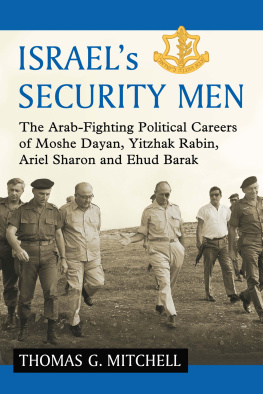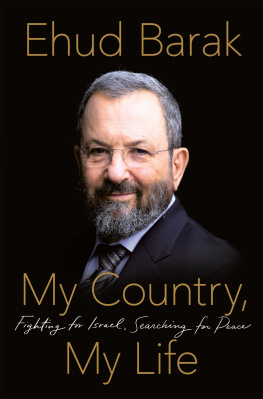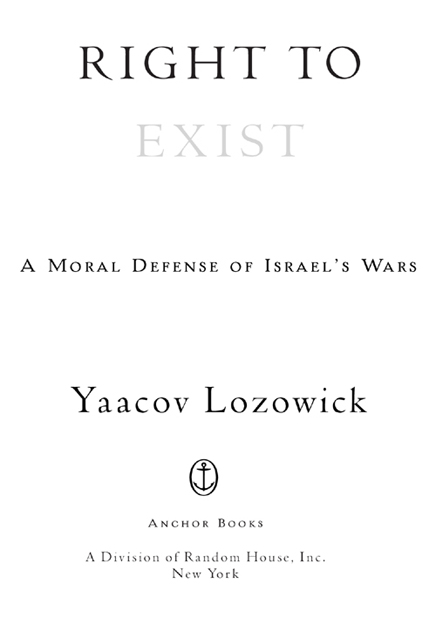Yaacov Lozowick is the director of the archives at Yad Vashem, Israels Holocaust Museum, and the author of Hitlers Bureaucrats: The Nazi Security Police and the Banality of Evil.
ALSO BY YAACOV LOZOWICK
Hitlers Bureaucrats:
The Nazi Security Police and the Banality of Evil
FIRST ANCHOR BOOKS EDITION, NOVEMBER 2004
Copyright 2003 by Yaacov Lozowick
All rights reserved under International and Pan-American Copyright Conventions. Published in the United States by Anchor Books, a division of Random House, Inc., New York, and simultaneously in Canada by Random House of Canada Limited, Toronto. Originally published in hardcover in the United States by Doubleday, a division of Random House, Inc., New York, in 2003.
Anchor Books and colophon are registered trademarks of Random House, Inc.
Citations from The Guardian have been reproduced with permission, and are copyrighted by the paper.
The Library of Congress has cataloged the Doubleday edition as follows:
Lozowick, Yaacov.
Right to exist : a moral defense of Israels wars / Yaacov Lozowick.
p. cm.
1. Arab-Israeli conflict. 2. JewsPublic opinion. 3. IsraelPublic opinion. 4. Public opinionArab countries. 5. WarMoral and ethical aspects. 6. Zionism. 7. Antisemitism. 8. JewsPalestineHistory20th century. 9. IsraelHistory, Military.
I. Title.
DS119.7.L69 2003
956.9405dc21
2003048477
eISBN: 978-0-307-83388-4
Author photograph Ossi Kupfer
Maps by Jeffrey L. Ward
www.anchorbooks.com
v3.1
T O M ALKA L OZOWICK ,
who taught me the imperative to be moral.
CONTENTS
MAPS
INTRODUCTION
W HY I V OTED FOR S HARON
T he war against the Jews goes on. Jewish children are shot in their beds, and the shooters are celebrated as heroes. Jewish teenagers are blown up, and the mothers of their murderers exult. Elderly Jews are burned to death, and the killers gloat on their Web sites. And across the Arab world from Pakistan to Morocco, hundreds of millions have nothing better to do than to chant for the death of the Jews. If there was one thing to be learned from the twentieth century, it is that when people consistently say that they want the Jews dead, they may actually mean it. And when the rest of the world looks away or pretends not to hear, the killers take silence for acquiescence, acquiescence for concurrence, and concurrence for support.
Yet in our generation the Jews are quite capable of defending themselves, and that confuses the issue. The irrationality of wishing the Jews gone can hidejust barelybehind political considerations: the Jews must change before one can live with them. The immorality of passive support for the killers can hidealmost plausiblybehind censure of the way the Jews wield power: the Jews have brought their enemies ire upon themselves. Worst of all, the resolve of the Jews never to succumb can be whittled away by their own doubts about the wisdom of surviving by the sword and by their hopes of buying acceptance with political gambles: if only we were more benign and accommodating, our enemies would accept us.
The Jews cannot decide for the Arabs to accept Israels right to exist. They cannot decide for Israels Western detractors to accept the morality of the choices she makes. But Israel can and must do her utmost to ensure that her choices are moral and wise; when theyre not, they must be corrected. Jews care deeply about morality and always have; this has been a source of their strength in the face of enduring adversity. Since the adversity continues unabated, the strength that comes from being moral is as essential as ever.
My initial understanding of Zionism, while childish, was shared by most adults I knew. It had a good side, the Israelis, and a bad side, the Arabs, and they were so bad that their motives seemed almost inexplicable. The Arabs kept trying to destroy Israel, but Israel, partly by virtue of her moral methods of waging war, repeatedly rebuffed the heinous Arab attacks. The events of spring 1967bombastic Arab speeches about destroying Israel, total international ineptitude in stopping them, if not even acquiescence, and then the seemingly miraculous Israeli deliverance and victorythese were the formative events of my childhood.
My arrogant complacency took its first blow on the gray afternoon of February 21, 1973, when our fighter pilots shot down a civilian Libyan airliner that had strayed into Israeli airspace over the Sinai. I was appalled by the deaths of everyone aboard and horrified by the total lack of remorse exhibited by the head of the army and the two civilians above him, Defense Minister Moshe Dayan and Prime Minister Golda Meir. The plane had no reason to be there, they said. It had flown over a military installation. It could have been spying. There was no way to knowso they had ordered it shot down.
I was a teenager at the time, and in the first political act of my life I faced my peers with the demand that they agree that while Zionism was still fine, these particular Zionists must go. Almost no one agreed.
From 1975 I spent three years in the armored corps. The army I was in was still reeling from the ferocity of the 1973 Yom Kippur War, in which people I knew had been killed; we spent most of our time in the Sinai desert, training to stop and rout another Egyptian attack, should it come. To listen to Israels critics today, we were already a decade into the brutal occupation of the Palestinians, but neither I nor anyone I knew had any military encounters with occupied Palestinians. We served on the borders and faced Arab armies or Palestinian forces in Lebanon; the Palestinians under our occupation went to work in Israel, and while undoubtedly disliking us intensely, they did very little that called for brutal oppression. On vacations we would roam freely wherever we wished, at times taking Palestinian buses between Palestinian towns. One image stands out: eight or nine of us standing in a Palestinian town and Avi Greenwald cracking jokes in Yiddish, to the tremendous amusement of the young Palestinians grouped around us. Avi was killed a few years later, fighting the Syrians; I have no doubt that some of those young Palestinians were later killed fighting us. That simple scene is hard to conceive of today.
A few years later, out of the army and at university, I took to reading history, particularly the history of the Jewish state. The good guys vs. bad guys version of the story on which I had been raised lost its appeal; the story of Zionism acquired darker hues, and Arab rejectionism became less inexplicable. They hadnt asked us to come to their part of the world; the simplistic version of Zionism as a national movement that never did anything wrong, so I learned, was not the full story. As time went on, it seemed to me that saving the soul of the Zionist project requiredindeed demandedthat Israel address the Arab predicament. That we reach a mutual accommodation that would address the basic needs not only of the Jews, but of their neighbors, especially the Palestinians. The Egyptian case was a shining example that this could happen.







